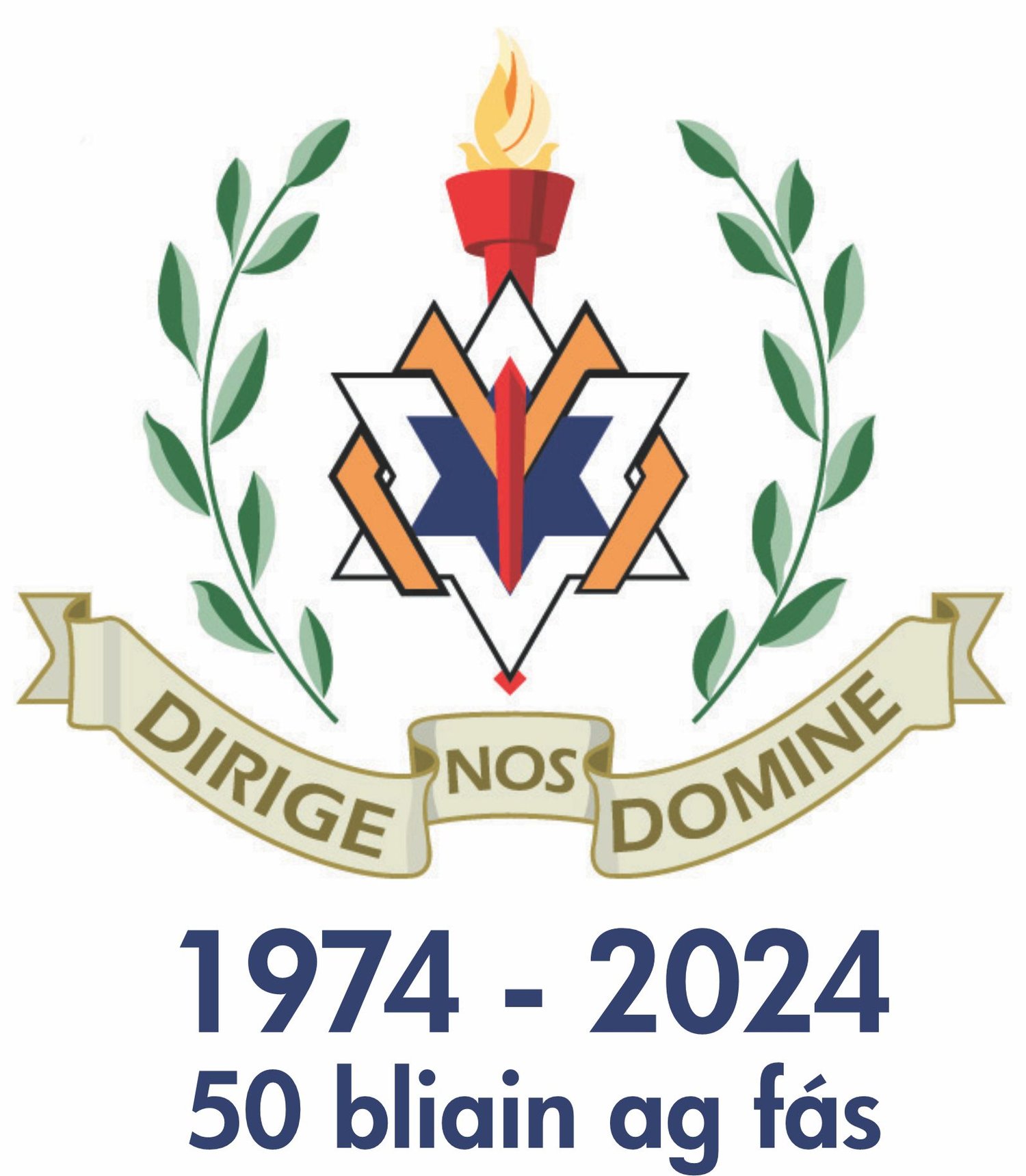Transition Year
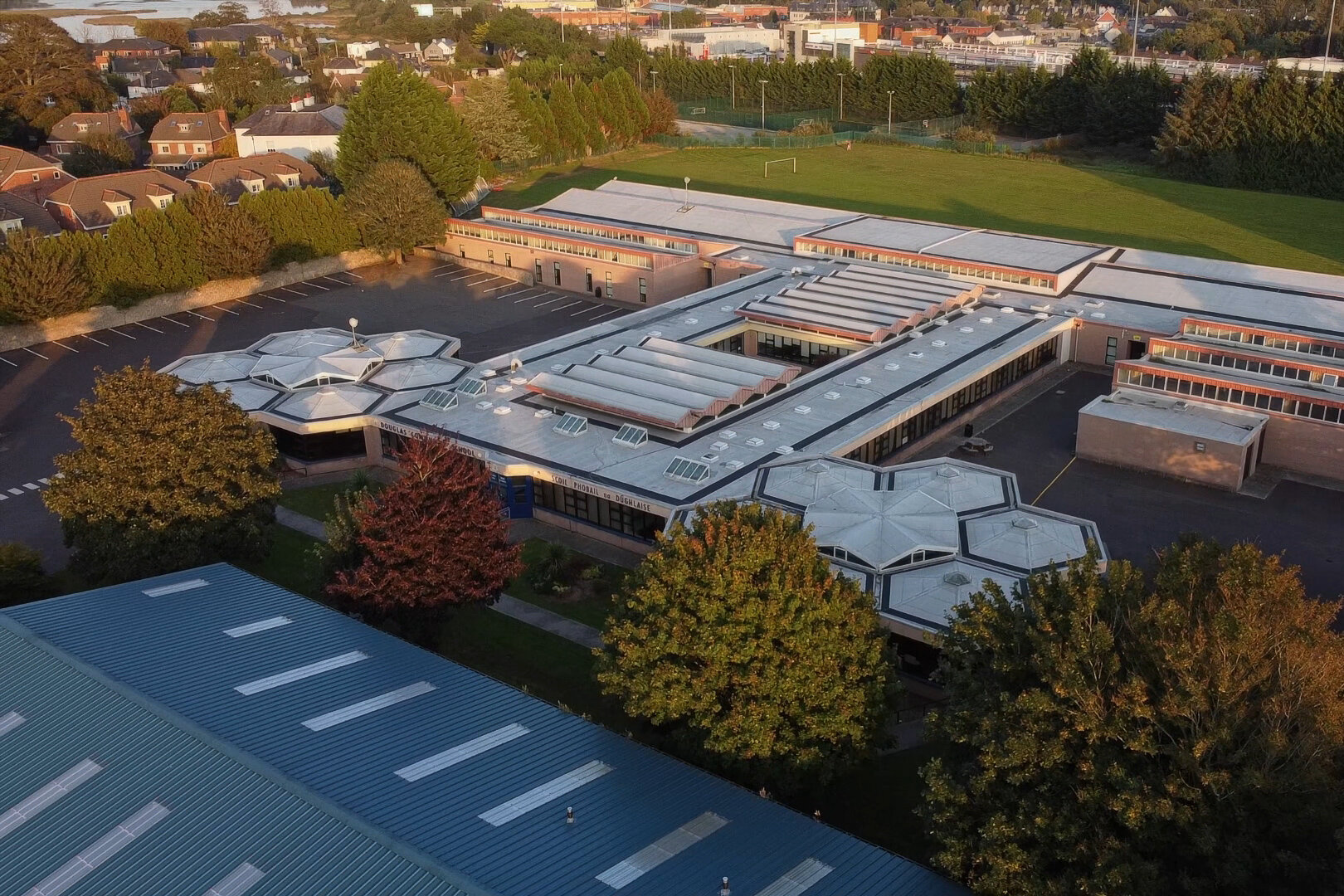
The Transition Year Opportunities
Transition year gives students opportunities to:
✓ Learn about leadership, co-operation and dealing with conflict
✓ Learn through meeting people beyond the classroom.
✓ Awareness of social issues.
✓ Discover more about your own personal strengths – what you are good at.
✓ Enhance ICT skills.
✓ Add a valuable set of experiences and Certificates to your CV
✓ Sample and discover new subjects.
✓ Make informed choices about Leaving Certificate subjects.
✓ Develop a variety of new skills
✓ Learn more about the working world through work experience.
✓ Catch up on learning missed out during the Junior Cycle.
✓ Take part in outdoor pursuits.
✓ Learn about working as part of a team.
✓ Undertake projects on various topics.
✓ Practice meeting deadlines for assignments.
✓ Become a more independent learner
✓ Develop more understanding and confidence about yourself as a person.
Typical Week for a TY student
Douglas Community School has developed its own style of TY Timetable that we feel best caters for the educational advancement of our students.
Core subjects: Students will study for the entire year: Irish, English, Maths, R.E, Computers and P.E.
Sample Leaving Certificate Subjects: Students will be given the opportunity to sample each subject available to study for the Leaving Certificate, 9 classes of each subject, on rotation, from August to December. They will then be asked to choose one subject from each option block. As part of this process, they will also have Career Advice classes to help them select the appropriate subjects. The option blocks are formed by surveying the students at the end of their third year. Demand for the various option subjects creates the different blocks/arrangements which change each year depending on student preference.
TY Subject Modules: On a Tuesday students partake in the Drama module for 3 classes until December, in preparation for the TY Panto at Christmas. Then in January the students partake in various Transition Year modules such as Tourism studies, Moving Images, Internet Safety, Drama Workshops with primary kids, First Aid classes and Cookery Classes in the Cookery Cottage.
On Monday, Tuesday and Wednesday mornings, other modules such as Chinese, Environmental Studies, Financial Literacy, Safety, Career Guidance, Wellbeing and Enterprise Education are sampled. For example, the enterprise module seeks to develop enterprise characteristics and skills and in the past resulted in various products such as advertising leaflets, language notes, personalised calendars, oreo milkshakes, pancakes and even barbequed burgers!!
No week is the same in TY. Right throughout the year there are a number of different outings, talks, visitors etc. For example in 2022/23 there was an outing to Ballyhass Lakes, a visit from the Douglas Rehab group, TY Wheelchair Basketball, a trip to the Glucksman and from the RSA Roadshow to name but a very few. Likewise the TY accounting class immensely enjoyed the The Bank of Ireland Money Smarts Programme and School Bank. These very popular initiatives are facilitated by Irish Olympian and Bank of Ireland Youth Co-Ordinator Rob Heffernan, who was particularly impressed with the DCS team this year as they showed fantastic initiative in both running the school bank and in the organising of an associated Fun Run for our Junior School classes.
Individual students may opt to do other things during the year and this may be facilitated depending on the validity and value of the proposal. For example, last year students spent a week in the army or in third level college based transition year programmes in Trinity College and UCC.
The International Computer Driving Licence (ICDL), is offered with 3 IT classes per week. Here, students learn modules such as word processing, spreadsheets, database, image editing, online collaboration and online essentials, valuable skills for securing employment.
We also look to our students doing courses that will be of benefit to them as they enter the world of work so in 2023 students were fortunate to have the opportunity to do Certified Courses in First Aid, a Barista Course as well as a 4 week cookery module in Cookery Cottage.
In 2023 we also introduced the UCC Bystander Programme into the curriculum for our TY group. This will bring huge benefits to our students as we help them grow and develop into mature and responsible young men.
The arts and sports fields are also covered with the TY class of 2022 helping Keith Haring to paint a beautiful mural to brighten up our school yard. This year group also facilitated a football blitz of over 200 students between our neighbouring primary school students.
Students are given the opportunity to get involved in lots of other initiatives too. Various competitions such as Coder Dojo, Physc Slam, YSI, Language/ Maths/ Science quizzes etc are entered. These can be fantastic opportunities for students to grow, develop and even travel. This year, Michael Morley, while taking part in the Graduate.ie online quiz won an all expenses paid trip to Luxembourg, Brussels and the European Youth Parliament in Strasbourg, where he will take part in a Youth Parliament (Euroscoala) with students from across EU member states.
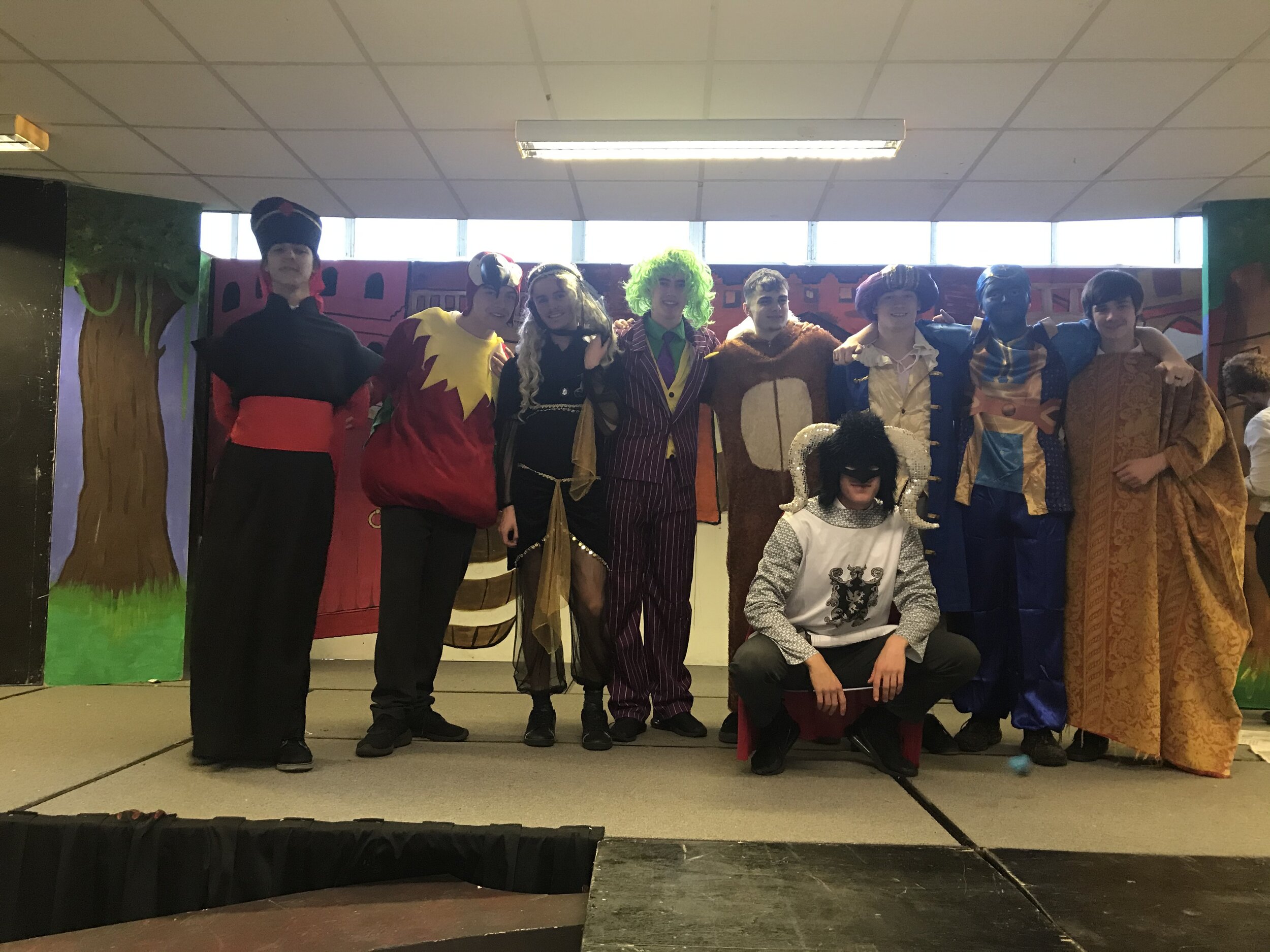
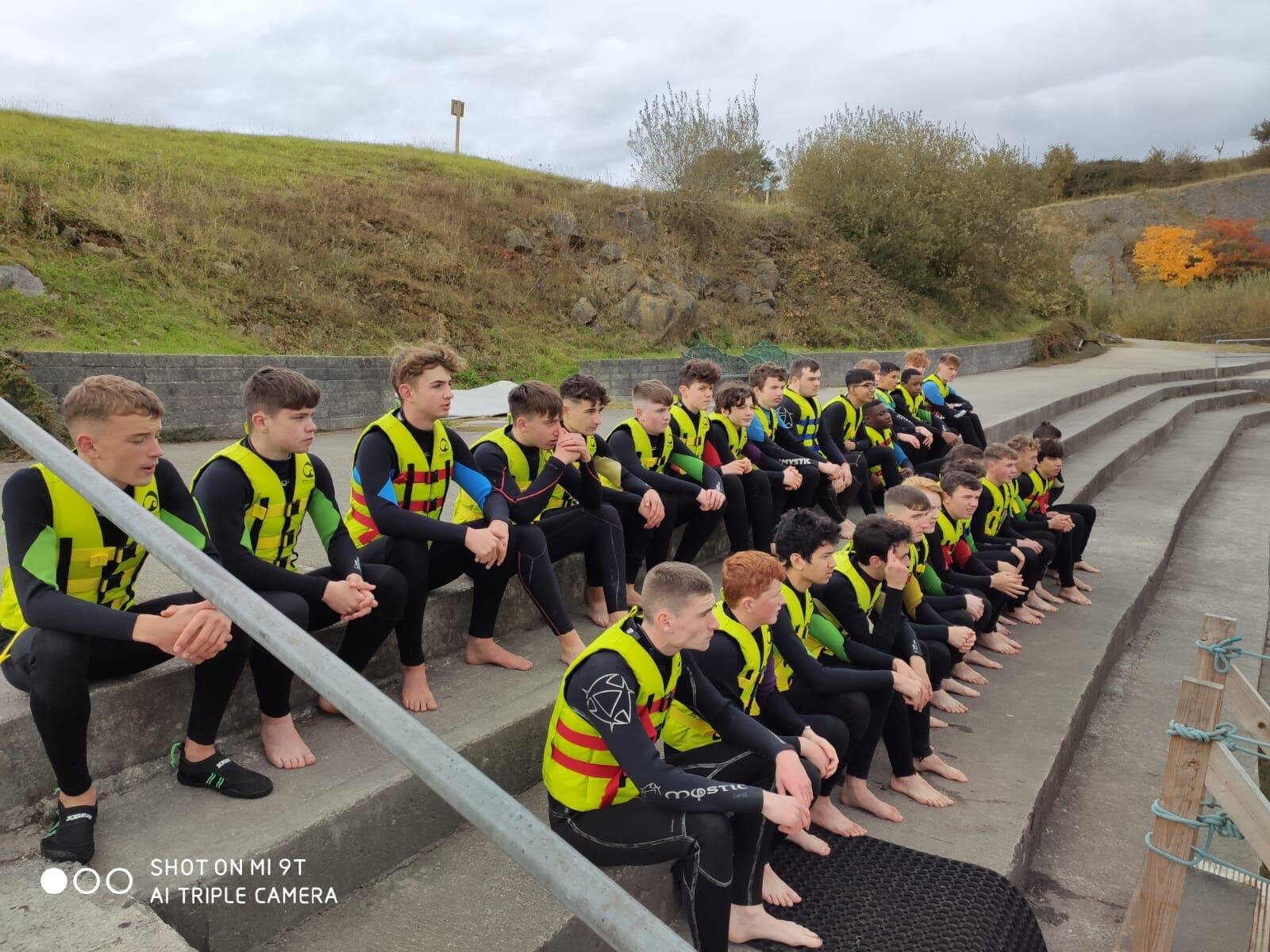
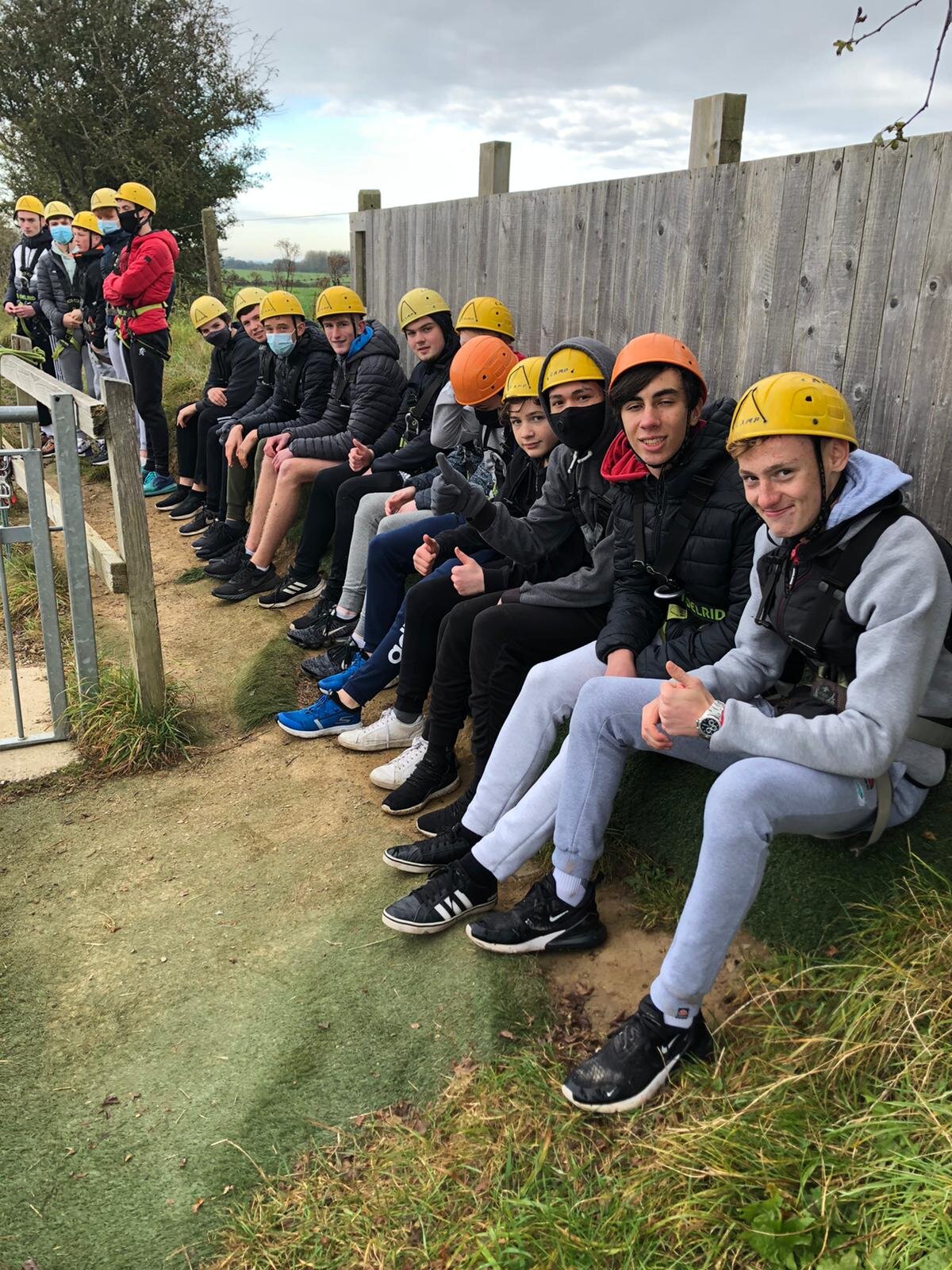
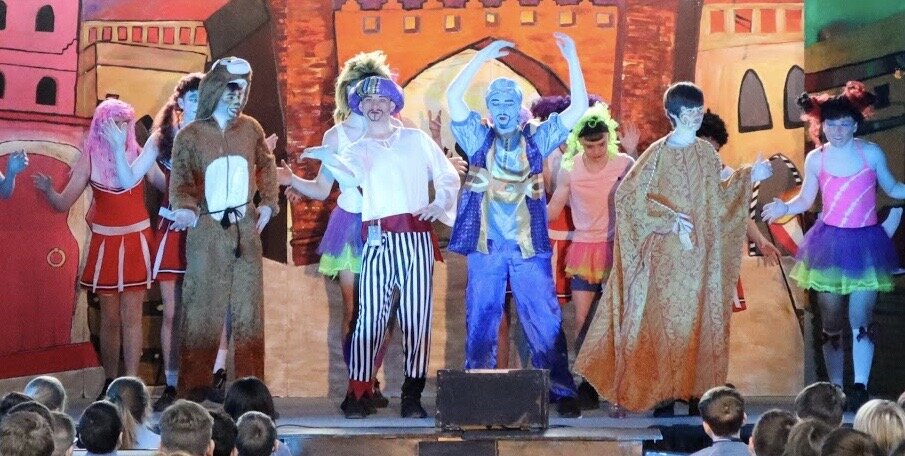
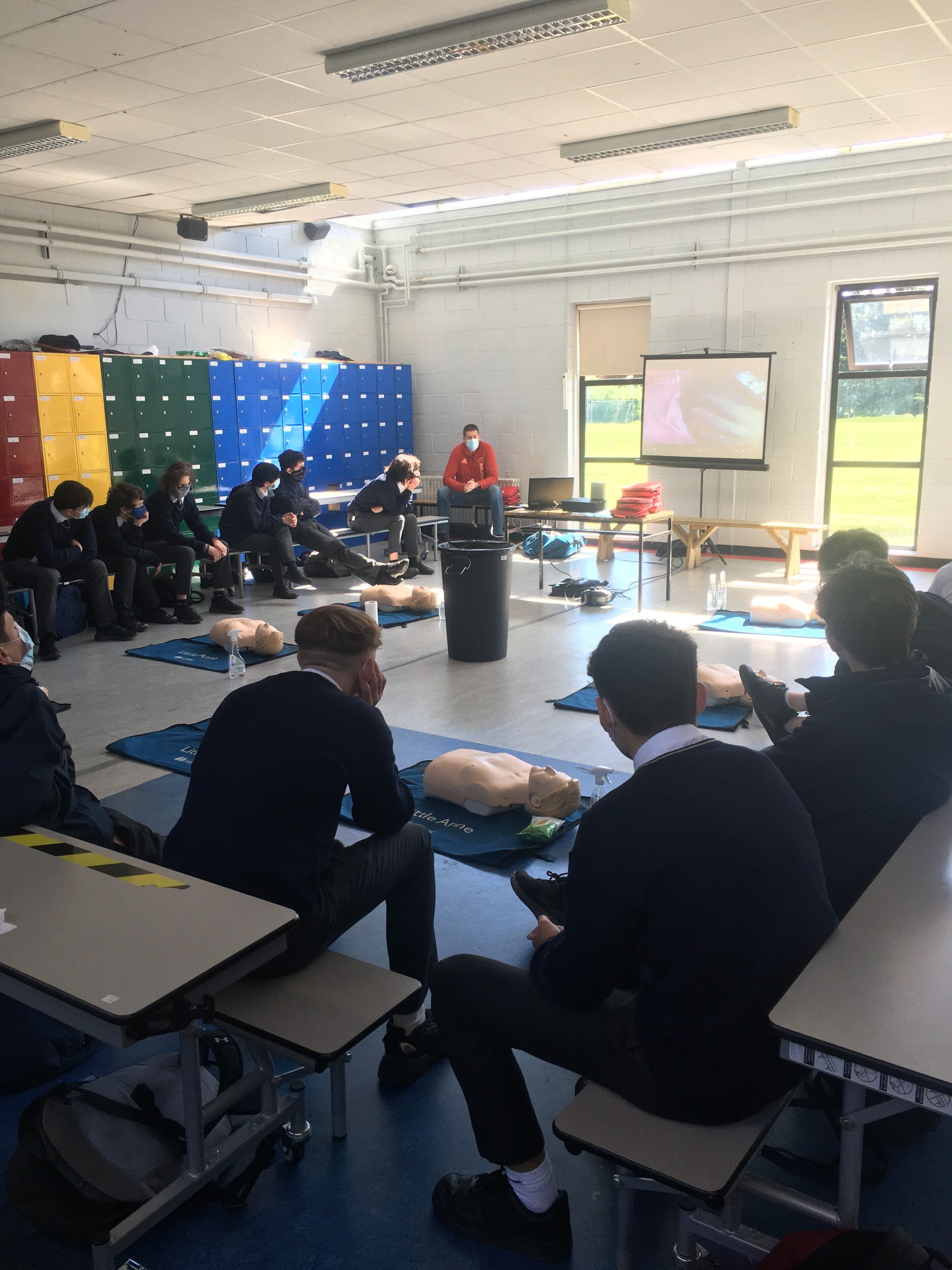
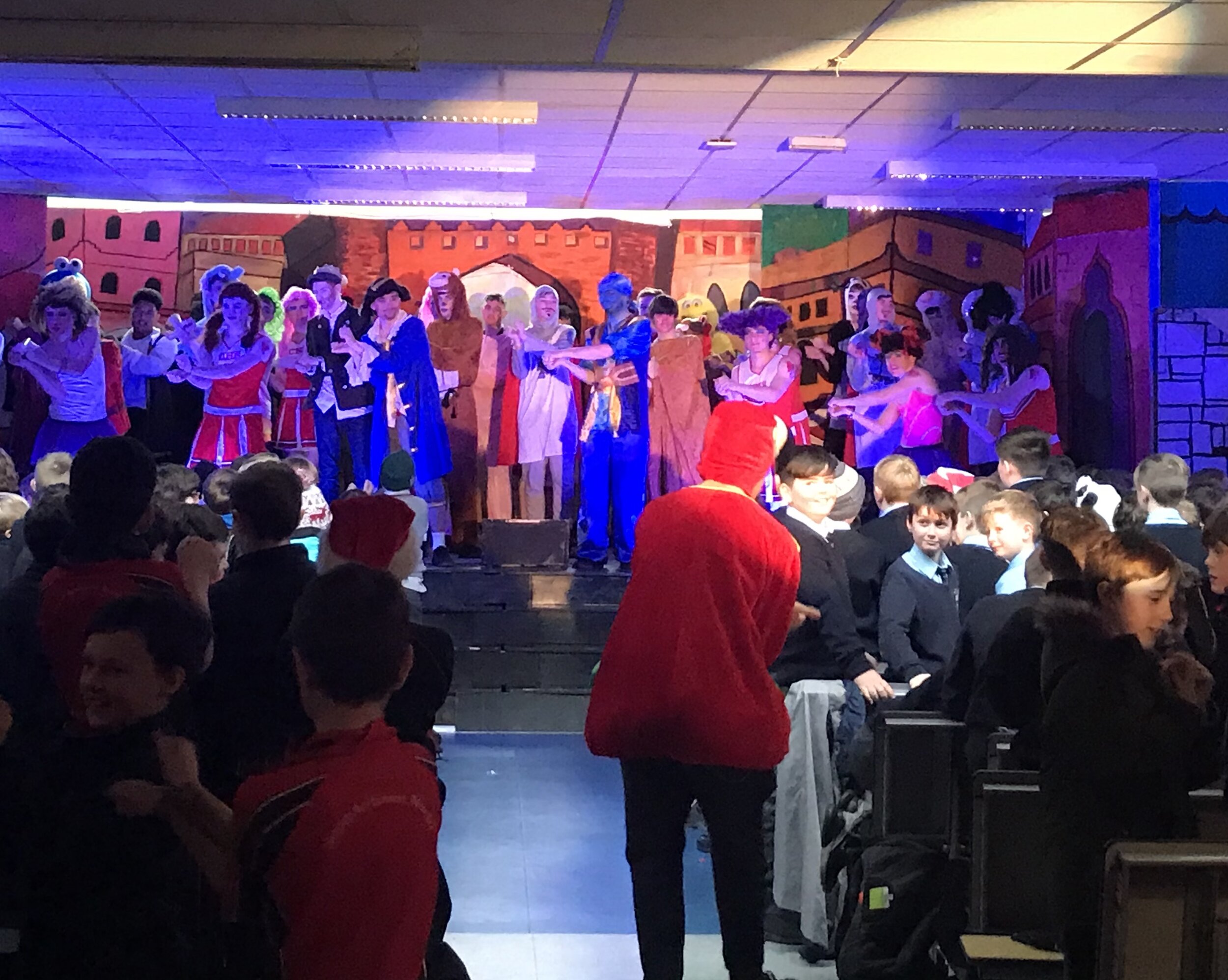
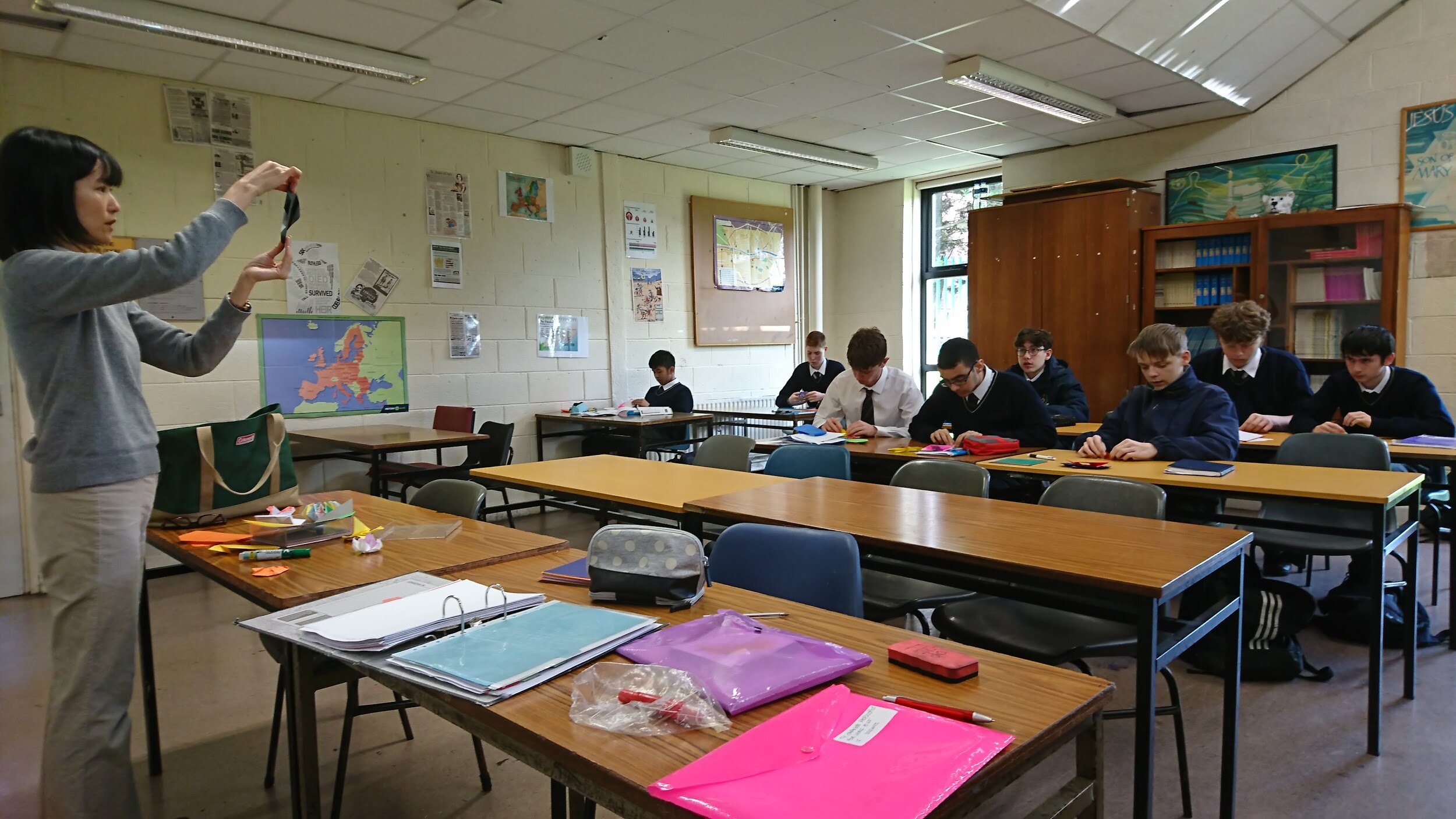
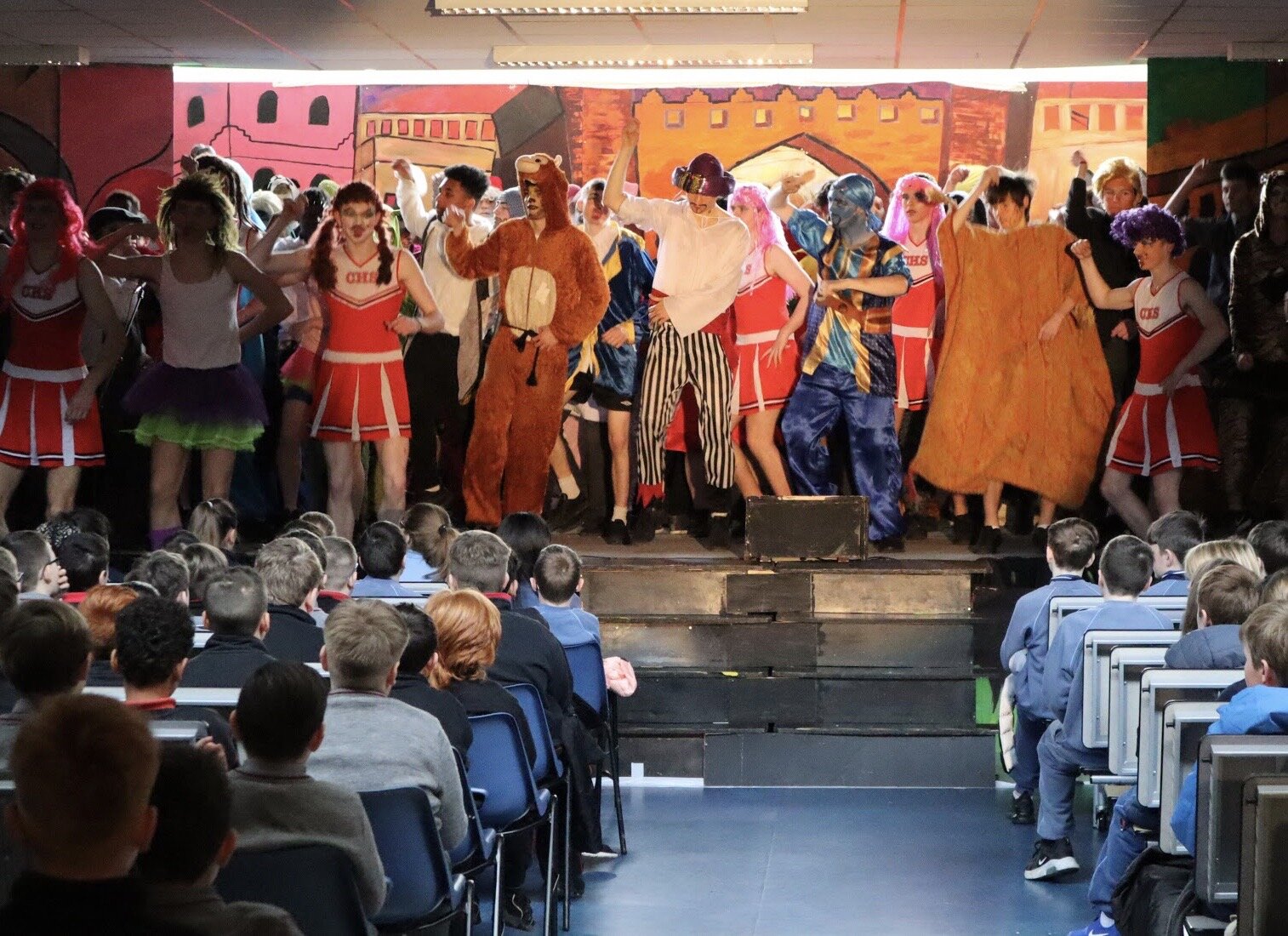
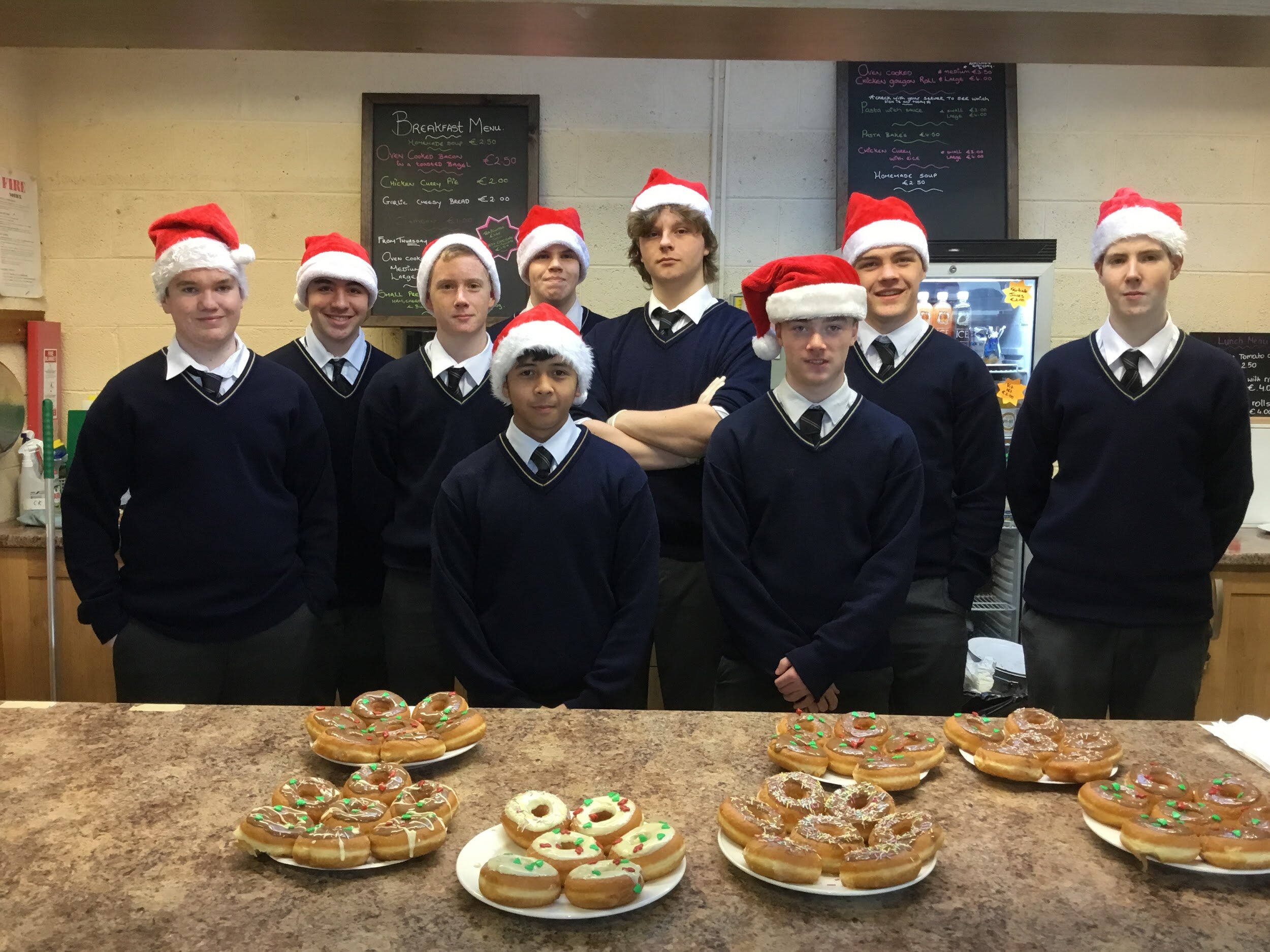
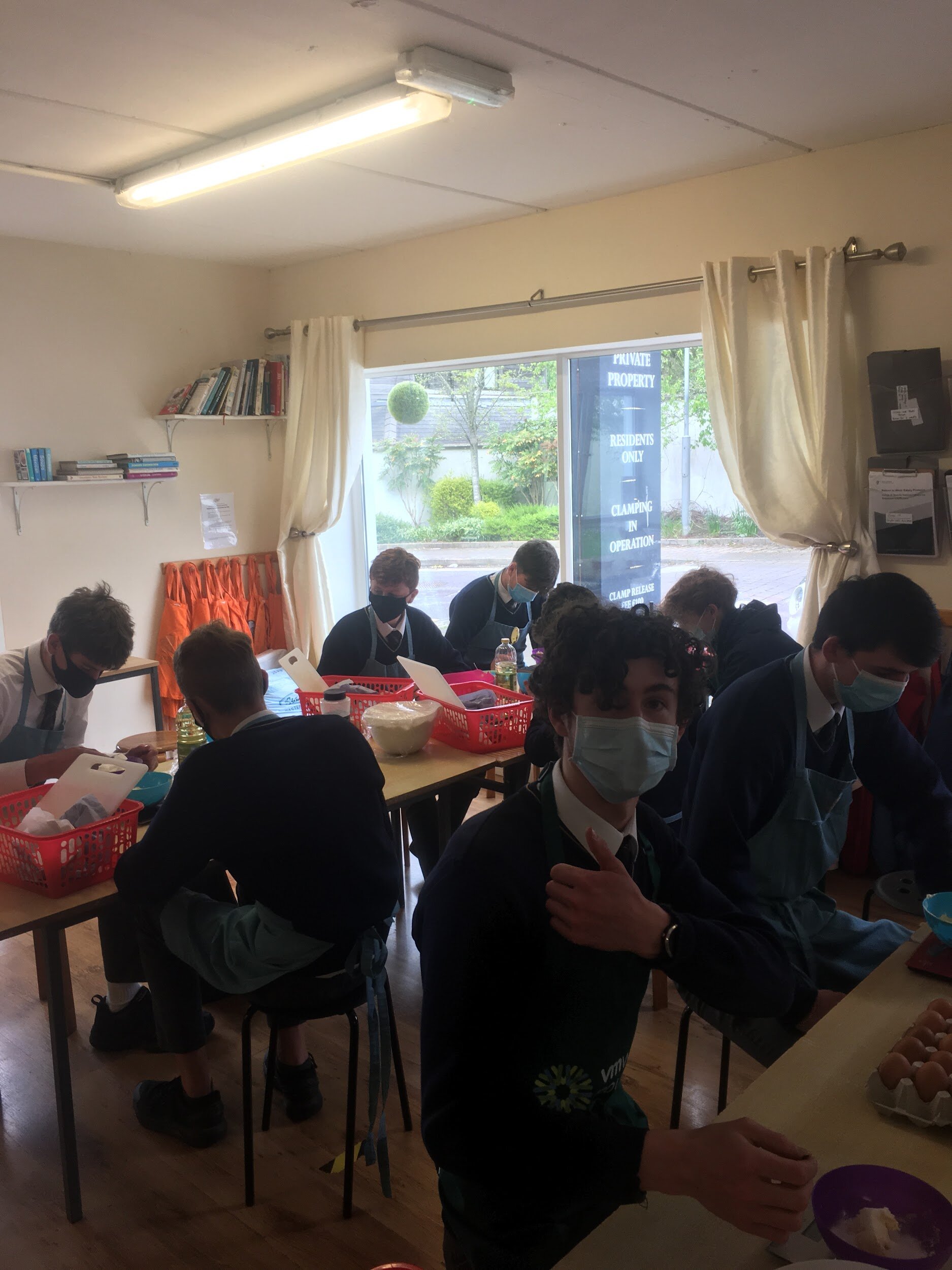
The Student Journal
The student journal of the TY student is specific to that year group. The first half of the journal is for the regular recording of homework and the second half of the journal is there to act as a record of the students' Transition Year specific activities. This is where students will be asked to chart their own learning experience and become self aware of their achievements. Each student will be asked to fill various parts of it at specific times.
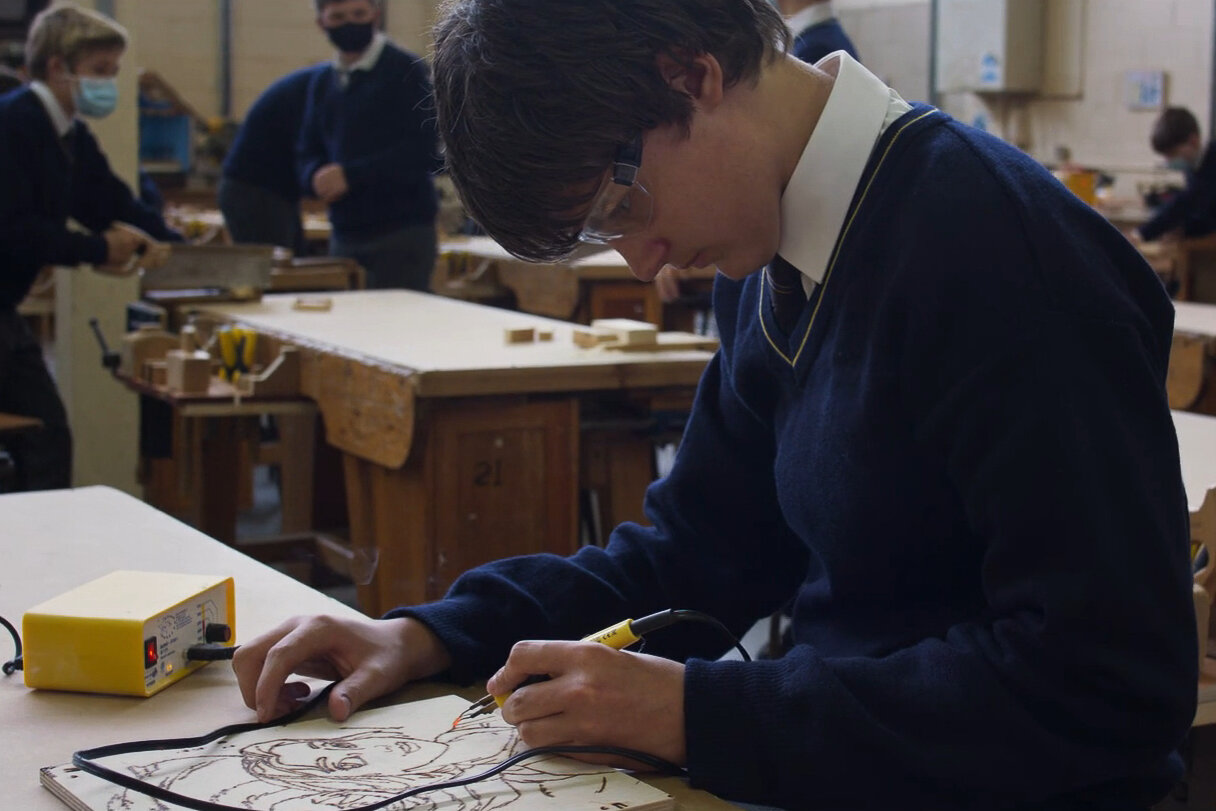
The Work Experience Programme
Work experience is an integral mandatory part of the Transition Year experience as it offers students the opportunity to get involved in areas of work that interest them.
It is always found to be one of the most beneficial experiences for the students as they enter into the Leaving Certificate cycle and begin thinking of possible college courses. It gives them a great opportunity to put their knowledge and talents into practice in a workplace environment and lets them see how what they have learned in school can be applied in real world situations.
The work should be of an unpaid nature and of real long term value to the student, focusing on potential future career options.
In October the students will be given a handout with practical advice on how to seek work experience, putting together a C.V. as well as a cover letter etc.
Transition year students will be asked to find work experience placements for the first two weeks after the February mid-term break. Students are expected to secure their own work experience.
Students are encouraged to sample two different types of employment if possible.
Students are briefed before they go out on work experience on punctuality, full attendance, initiative, relationships with colleagues and customers, mode of dress, willingness to take orders etc.
At the end of each work session employers complete an assessment form which is returned to the school.
At the end of each academic year the school holds a ceremony where we celebrate the many achievements of the students by acknowledging all their hard work, presenting certificates achieved and highlighting those students who excelled during this very unique year by presenting them with the the D.C.S.TY Ethos Awards
— DSC Cork
The Douglas Community School
Transition Year Programme Evaluation
MAIN FINDINGS
• The quality of teaching and learning across the range of lessons and student activities, observed during the evaluation, was very good.
• Students were actively engaged by, and participated in lessons, that were fully appropriate to a Transition Year (TY) learning experience.
• A significant subject-sampling experience is provided to students.
• Community-service involvements, work-experience and TY-specific modules provide meaningful co-curricular involvements for students.
“……..content of lessons had been well planned, and that it was grounded in an appropriate balance between material that links appropriately to learning for Leaving Certificate, and material that allowed for classroom activities that are set firmly within TY specific teaching and learning methodologies”
“In all the lessons and learning settings observed, interactions were positive, courteous, and respectful. Students were assertive and willing to engage with their teachers and peers. The atmosphere created was conducive to engagement, creativity, and learning.”
“The TY programme is well-established in the school and has significant visibility. Its structure and provision is clearly in line with TY philosophy and guidelines. The layers of curriculum, including the academic, personal development and the social and community layers are clearly evident”
There were three main recommendations outlined in the report and all three recommendations were implemented as acknowledged in the schools most recent Whole School Evaluation Report:
“In this context, the renewal of a clear and specific identity for the TY programme in the school is recommended through the development of an induction activity, new high-profile programme-specific events, portfolio assessment and certification, and an end-of-year celebration event.”
